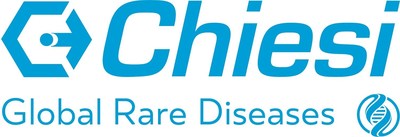Protalix BioTherapeutics and Chiesi Global Rare Diseases Present Key Clinical Data of Pegunigalsidase Alfa for the Treatment of Fabry Disease at the 17th Annual WORLDSymposium™ 2021
CARMIEL,


The final results, which were first announced in
The BRIDGE clinical trial was a Phase III 12 month open label, single arm switch over study evaluating the safety and efficacy of pegunigalsidase alfa, 1 mg/kg infused every two weeks, in up to 22 Fabry patients previously treated with agalsidase alfa, marketed by Takeda Pharmaceutical Company Limited (formerly Shire Plc) as Replagal®, for at least two years and on a stable dose for at least six months. Replagal is not approved in
The data to be presented by
Twenty of twenty-two patients completed the 12-month treatment duration, 18 of which opted to roll over to a long-term extension study and continue to be treated with pegunigalsidase alfa.
In the BRIDGE study, the mean annualized eGFR slope of the study participants improved from -5.90 mL/min/1.73m2/year while on agalsidase alfa to -1.19 mL/min/1.73m2/year on PRX-102 in all patients. Male patients improved from -6.36 mL/min/1.73m2/year to –1.73 mL/min/1.73m2/year and female patients improved from -5.03 mL/min/1.73m2/year to –0.21 mL/min/1.73m2/year. Following the switch to pegunigalsidase alfa there was a decrease in patients with progressing or fast progressing kidney disease, and the majority of patients achieved a stable status post-switch.
An immunogenicity assessment indicated that four out of 20 patients (20%) developed persistent antidrug antibodies over the course of the study, of which two had neutralizing activity.
Baseline characteristics of the 20 patients that completed the study, ranging from ages 28 to 60 years, were as follows: mean eGFR 75.87 mL/min/1.73m2 in males, and 86.14 mL/min/1.73m2 in females and plasma lyso-Gb3 mean levels were 51.81 nM and 13.81 nM in males and females, respectively. While lyso-Gb3 levels remain slightly high, particularly within the male cohort, continuous reduction in lyso-Gb3 levels was observed of 19.55 nM (32.35%) in males and 4.57 nM (29.81%) in females.
"The final analysis of the BRIDGE Study in Fabry patients previously treated with agalsidase alfa demonstrates a potential benefit of pegunigalsidase alfa on renal function," said
Pegunigalsidase alfa was well tolerated in the study, with all adverse events being transient in nature without sequelae. Among the 22 patients enrolled in the BRIDGE study, the majority of treatment emergent adverse events were mild or moderate in severity (96.9%), with two patients (9.1%) withdrawing from the therapy due to hypersensitivity reaction that was resolved. The most common moderate treatment emergent adverse events were nasopharyngitis, headache and dyspnea.
Additional details can be found on the WORLDSymposium website at https://worldsymposia.org/. Copies of the presentation materials will be made available on
About Fabry Disease
Fabry disease is an X-linked inherited disease that results from deficient activity of the lysosomal α-Galactosidase-A enzyme resulting in progressive accumulation of abnormal deposits of a fatty substance called globotriaosylceramide (Gb3) in blood vessel walls throughout a person's body.
Fabry disease occurs in one person per 40,000 to 60,000. Fabry patients inherit a deficiency of the α-Galactosidase-A enzyme, which is normally responsible for the breakdown of Gb3. The abnormal storage of Gb3 increases with time and, accordingly, Gb3 accumulates, primarily in the blood and in the blood vessel walls. The ultimate consequences of Gb3 deposition range from episodes of pain and impaired peripheral sensation to end-organ failure – particularly of the kidneys, but also of the heart and the cerebrovascular system.
About Pegunigalsidase Alfa
Pegunigalsidase alfa (PRX-102) is an investigational, plant cell culture-expressed, and chemically modified stabilized version of the recombinant α-Galactosidase-A enzyme. Protein sub-units are covalently bound via chemical cross-linking using short PEG moieties, resulting in a molecule with unique pharmacokinetic parameters. In clinical studies, PRX–102 has been observed to have a circulatory half-life of approximately 80 hours. PRX–102 has been designed to potentially address the continued unmet clinical need in Fabry patients.
About Chiesi Global Rare Diseases
Chiesi Global Rare Diseases is a business unit of the
About
Based in
About
Forward-Looking Statements
To the extent that statements in this press release are not strictly historical, all such statements are forward-looking, and are made pursuant to the safe-harbor provisions of the Private Securities Litigation Reform Act of 1995. The terms "expect," "anticipate," "believe," "estimate," "project," "plan," "should" and "intend," and other words or phrases of similar import are intended to identify forward-looking statements. These forward-looking statements are subject to known and unknown risks and uncertainties that may cause actual future experience and results to differ materially from the statements made. These statements are based on our current beliefs and expectations as to such future outcomes. Drug discovery and development involve a high degree of risk and the final results of a clinical trial may be different than the preliminary findings for the clinical trial. Factors that might cause material differences include, among others: failure or delay in the commencement or completion of our preclinical and clinical trials which may be caused by several factors, including: risks that the FDA will not accept an application for accelerated approval of PRX–102 with the data generated to date or will request additional data or other conditions of our submission of any application for accelerated approval of PRX–102; unforeseen safety issues; determination of dosing issues; lack of effectiveness during clinical trials; inability to monitor patients adequately during or after treatment; inability or unwillingness of medical investigators and institutional review boards to follow our clinical protocols; and slower than expected rates of patient recruitment; risks associated with the novel coronavirus disease (COVID–19) outbreak, which may adversely impact our business, preclinical studies and clinical trials; the risk that the results of the clinical trials of our product candidates will not support our claims of safety or efficacy, that our product candidates will not have the desired effects or will be associated with undesirable side effects or other unexpected characteristics; risks related to our ability to maintain and manage our relationship with
Investor Contact
646-627-8390
chuck@lifesciadvisors.com
SOURCE